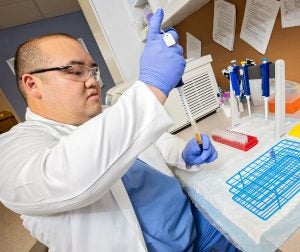The Investigator – August 2020
Changes to Euthanasia Guidelines?
The American Veterinary Medical Association (AVMA) has issued and posted an update to the Guidelines for the Euthanasia of Animals: 2013 Edition, the AVMA Guidelines for the Euthanasia of Animals: 2020 Edition. After October 1, 2020, grant applications and contract proposals must be consistent with the 2020 Guidelines.
https://www.avma.org/sites/default/files/2020-01/2020-Euthanasia-Final-1-17-20.pdf
NIH Salary Cap change
Effective January 5, 2020, the new NIH salary cap is $197,300. Previously issued awards that restricted salary the previous salary cap including competing awards already issued in FY2020, if adequate funds are available in active awards, and if the salary cap increase is consistent with the institutional base salary, grantees may rebudget funds to accommodate the current Executive Level II salary level.

Reminder:New timeline for Proposal Submission in eTRACS
Start early! A new timeline has been given from the Office of Research Administration (ORA). The new guidance provides a 10-day, 5-day and 2-day timeline to ensure the routing and proper review by ORA to ensure successful application submission. Proposals will be submitted to the sponsor only if all final documents are routed to ORA and unit approvals completed in eTRACS at least 2 working days prior to the sponsor’s submission deadline.
Details 10/5/2 Guidelines:
1) A new proposal record should be started in eTRACS at least ten (10) working days before the sponsor’s submission deadline;
2) Proposal routing must start five (5) days before the sponsor submission due date. All required documents must be in final form except the research plan/statement which can be a draft.
3) The final application, including final research plan/statement, must be in ORA’s queue for approval a minimum of two (2) working days before the sponsor’s submission deadline.
Consultant vs. Subaward
When submitting an application, it is important to determine if personnel on your award are consultants or if a subaward is needed. A consultant is not a university faculty but is a person operating as an external consultant must use his/her own resources (time, facilities, communication systems, equipment, supplies, etc.) in conducting the work. In most cases an ECU employee should not be considered a consultant on ECU application/award. For more information regarding consultants please see guidance from ORA
Subawards are contract made with other universities and/or entities
NIH also provides great guidance on determining project roles NIH guidance on consultant, collaborators and subawards
Subaward/Sub Recipient
- Performance is measured against the objectives of the sponsored project
- Responsible for programmatic decision making
- Responsible for adherence to applicable federal compliance requirements
- Utilizes funds to carry out a program of the organization – not to provide goods or services for the program
- Cannot be an individual
Consultant
- Provide goods and services within normal business operations
- Provides similar goods and services to many different purchasers
- Operates in a competitive environment
- Provides goods and services ancillary to the operation of the federal program
- Not subject to monitoring or reporting requirements of the prime award
- Can be entity or individual
- Consultants do not receive a salary from your grant but may receive a fee
Stimulating Hematology Investigation: New Endeavors (SHINE) (R01 Clinical Trial Not Allowed)
The Stimulating Hematology Investigation: New Endeavors (SHINE) program is intended to promote innovative, high-quality nonmalignant hematology research relevant to the missions of the National Institute of Diabetes and Digestive and Kidney Diseases (NIDDK), National Institute of Aging (NIA), and the National Heart, Lung, and Blood Institute (NHLBI). Investigator-initiated research applications (R01s) in specific areas of basic and early translational hematology research are invited to this program that supports growth in the nonmalignant hematology research domain. Specific emerging topics that are at the leading edge of the field will change over time and will be updated annually through the NIH Guide to Grants and Contracts.
Stimulating Hematology Information
Diet and Physical Activity Assessment Methodology (R21 Clinical Trial Not Allowed)
National Institutes of Health (NIH) and its participating Institutes and Centers invite applications for innovative research to enhance the quality of measurements of dietary intake and physical activity. Applications submitted may include development of: novel assessment approaches; better methods to evaluate instruments; assessment tools for culturally diverse populations or various age groups, including children and older adults; improved technology or applications of existing technology; statistical methods/modeling to improve assessment and/or to correct for measurement errors or biases; methods to investigate the multidimensionality of diet and physical activity behavior through pattern analysis; or integrated measurement of diet and physical activity along with the environmental context of such behaviors. This FOA will use the NIH R21 Exploratory/Developmental Research Grant award mechanism.
Diet & Physical Activity Assessment Information
Addressing Health Disparities in NIDDK Diseases (R01 Clinical Trial Not Allowed)
National Institute of Diabetes and Digestive and Kidney Diseases (NIDDK) invites applications for research to understand and mitigate health disparities in the development, diagnosis, and treatment of diseases of high priority to the National Institute of Diabetes and Digestive and Kidney Diseases (NIDDK). Research is encouraged in the following high priority diseases: diabetes and other endocrine and metabolic diseases; obesity; nutrition-related disorders; hepatitis C; gallbladder disease; H. Pylori infection; complications of sickle cell disease within the NIDDK mission areas; kidney diseases; urologic diseases; metabolic, gastrointestinal, hepatic, and renal complications from infection with HIV; and mechanistic research in hematologic diseases, including studies in abnormal hemoglobin synthesis. This FOA does not support multi-center clinical studies or Clinical Trials. Animal research will be supported if the research is a clinically relevant model of a NIDDK mission area disease in a minority population. This FOA will use the NIH Research Project (R01) award mechanism.
Addressing Health Disparities Information
COVID-19 Awards